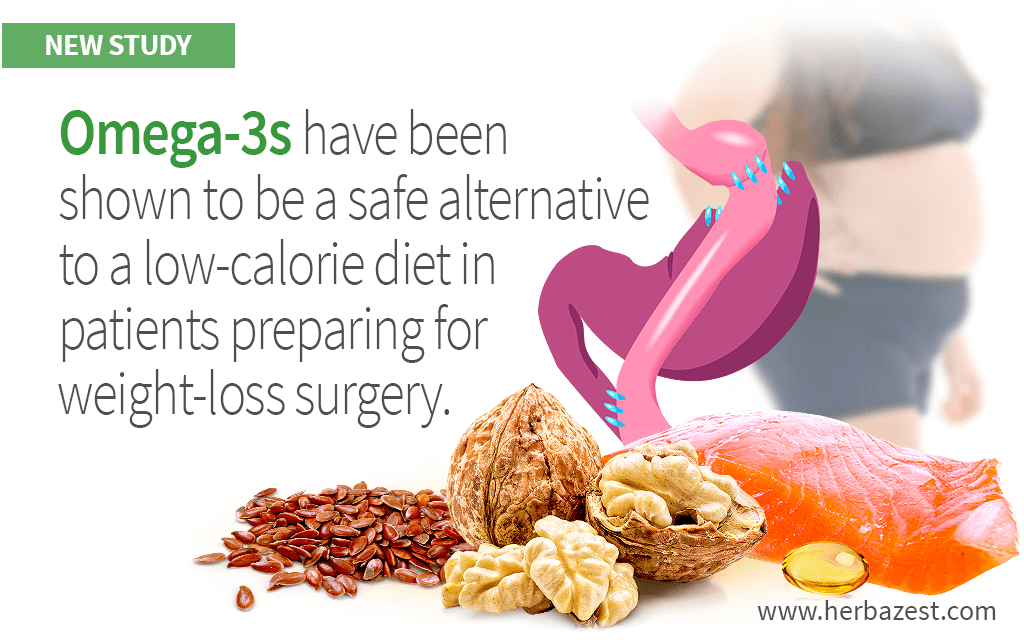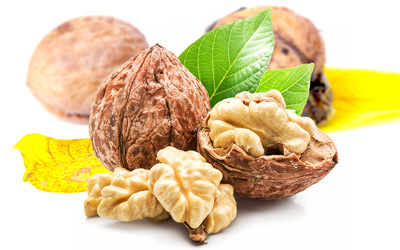Bariatric surgery is designed to help obese people lose weight by making changes in their digestive tract.1 To lower the risk of complications, reduce the size of the liver, and ease the procedure, patients are generally required to follow a low-calorie diet.
While beneficial, a low-calorie diet comes with certain disadvantages, like potential side effects, low compliance, and poor nutrition before surgery. As such, there is need for safer and easier alternatives of similar efficacy. Focusing on omega-3 fatty acids, which are commonly found in fish, walnuts, or flax, shows promise as previous studies found them to reduce liver fat content, improve its function, and promote weight loss.2,3
The aim of this study was to compare the effects of a low-calorie diet and omega-3 fatty acids for liver reduction before bariatric surgery.
The Study
This randomized, controlled trial was conducted by the researchers from the Red Cross Hospital, Northwest Clinics Alkmaar, and VU Medical Center Amsterdam, all in the Netherlands. The results were published in the Obesity Surgery journal.
It involved 62 women with morbid obesity (defined as having body mass index, or BMI, of 40 kg/m2 or above)4 scheduled for a laparoscopic Roux-en-Y gastric bypass surgery, one the most common types of bariatric surgery.
The control group was instructed to follow a standard, preoperative low-calorie diet (800 kcal per day) for 2 weeks, while the intervention group was advised to follow a normal diet (2,000 kcal per day) with an addition of 2 g of omega-3 fatty acids per day for 4 weeks.
All participants underwent various liver assessments before and after the surgery, including total liver volume (TLV), volume of the left liver lobe (LLL), visceral fat area (VFA), and muscle area (SMA).
The Results
At the end of the study, researchers found reduced LLL, TLV, and VFA in both groups.
Although the low-calorie diet group exhibited better improvements in LLL and TLV, it triggered a substantial loss of SMA. Also, because of side effects, the compliance was worse among the low-calorie diet participants.
The omega-3 fatty acids group, on the other hand, not only experienced a significant liver reduction, but also reported no side effects, had better compliance, and did not experience SMA loss.
What Does this Mean?
The results of this clinical trial signify that omega-3 fatty acids might be a safe and side effect-free alternative to a low-calorie diet for patients preparing for bariatric surgery.
By using omega-3 fatty acids for liver reduction and weight loss before the surgery, patients have higher chances for a complication-free procedure, faster recovery, and long-lasting outcomes.
Additional studies are necessary to determine if all bariatric patients can benefits from omega-3 fatty acid supplementation, pinpoint potential contradictions, and establish adequate dosage.
Other herbs that might be helpful for reducing obesity include fenugreek, cayenne, turmeric, and ginger.
Sources
- Obesity Surgery, Four Weeks of Preoperative Omega3 Fatty Acids Reduce Liver Volume: a Randomized Controlled Trial, 2019
Footnotes:
- Mayo Clinic. (2019). Bariatric surgery. Retrieved December 11, 2019 from https://www.mayoclinic.org/tests-procedures/bariatric-surgery/about/pac-20394258
- Molecular Aspects of Medicine. (2018). Omega-3 fatty acids and non-alcoholic fatty liver disease: Evidence of efficacy and mechanism of action. Retrieved December 11, 2019 from https://www.sciencedirect.com/science/article/pii/S0098299718300190
- Nutrients. (2010). Long-Chain Omega-3 Polyunsaturated Fatty Acids May Be Beneficial for Reducing Obesity-A Review. Retrieved December 11, 2019 from https://www.ncbi.nlm.nih.gov/pmc/articles/PMC3257626/
- University of Rochester. (n.d.). What is Morbid Obesity? Retrieved December 11, 2019 from https://www.urmc.rochester.edu/highland/bariatric-surgery-center/questions/morbid-obesity.aspx





